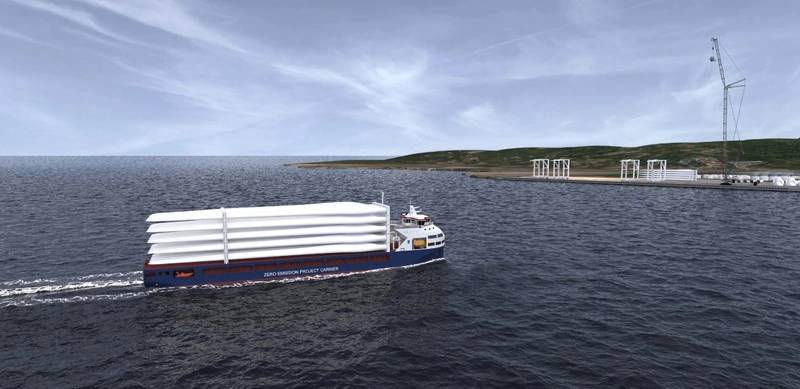Skarv Orders Four Short-sea MPVs from Huanghai Shipbuilding
Norway-based Skarv Shipping Solutions announced it has signed a contract with China's Huanghai Shipbuilding for the construction of four 7,000 dwt, low-carbon, multipurpose vessels, with an option for four more.
The first vessel will be delivered in the third quarter of 2025, with the others in four-month intervals. Skarv, which will own the ships, is a joint venture between Peak Group and Grieg Edge.

The vessels are designed by LMG Marin and include an optimized engine ready for ammonia or methanol, batteries, a shore-power system, peak shaving with a dynamic propeller drive system, and a high-voltage switchboard prepared for future green power production like fuel cell technologies and increased battery capacity.
“These ships are far more climate-friendly than what we see in the short-sea market in Europe today, with a very low fuel consumption. They are not what we imagine is the final climate solution for shipping, but they are a giant step in the right direction,” said Jan Øivind Svardal, CEO of Skarv.
On the cargo handling side, the ships will have open-top functionality enabling the movement of high vertical cargo, a wide deck beam for extra cargo intake, heavy-duty hatches, and tweendecks. The ships also have the accommodation in front to ensure visibility, increased deck space and protection of cargo.
“For our customers, this means you will be able to transport your cargo with a notably lower emission of greenhouse gasses and still show a remarkable efficiency in cargo handling and cost,” said chair of Skarv and CEO of Peak Group, Jan-Petter Slethaug.
The flexible ships are suited for almost all kinds of short-sea project cargo transport, including the movement of mid-size modules and wind turbine components in Europe. Skarv said it has yet to dedicate the vessels to any customer but will make them available in the market.
“There is considerable demand for reduced carbon emissions related to industry projects in Europe, and these ships will be ideal for many of these. The ships’ flexible design enables a potential transition to lower emission fuels upon delivery, provided that the market and infrastructure permit, even though they are not fully capable of zero emissions at present,” said Nicolai Grieg, managing director of Grieg Edge.
Related News

